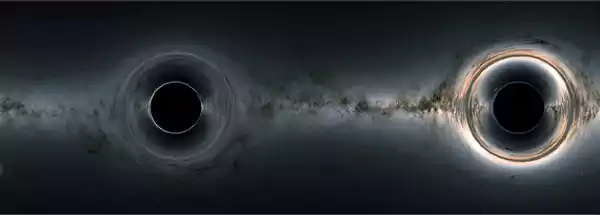The early Universe was a hot, dense place. Within a quintillionth of a second of the Big Bang, it was saturated with a super-hot soup of quarks and gluons. Researchers at MIT now think that during this time, tiny primordial black holes (PHBs) may have formed.

These black holes may be associated with the enigmatic dark matter that fills a significant portion of the universe.David Kaiser and Elba Alonso-Monsalve from MIT believe that these early black holes were a new type of matter that doesn’t exist today. “Even though these strange black holes are not around anymore, they might have left behind signals that we can detect today,” Kaiser explained.
This offers a new way to explore dark matter. Howecer, dark matter remains a mystery.
In fact, black holes can prevent light from escaping their gravitational pull. Black holes form when supermassive stars run out of fuel and explode in a burst known as a supernova.
After a sufficiently massive supernova explosion, all that remains is a black hole with an extremely strong gravitational pull capable of devouring everything in the universe.
According to researchers, we are fortunate that we are not near a black hole; otherwise, you would all be sucked into it.
